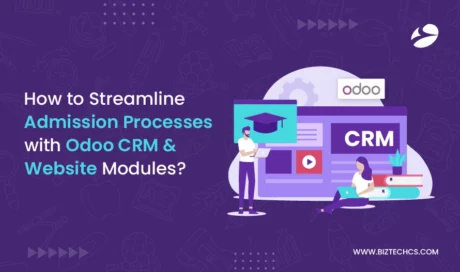3380
How to Use Artificial Intelligence in Mobile Apps
04 Mar, 2021
6 min read
3380
04 Mar, 2021
6 min read

Artificial Intelligence is a part of our lives. It’s in the consciousness of every industry. And the pandemic finally gave AI its momentum. Big guns have put their trusty AI systems to assist people and the government. For instance, IBM is providing agencies and institutions with its chatbot to answer virus tool-related queries.
This post will discuss AI’s potential in mobile app development and how you can take advantage.
The simplest definition of AI is by Demis Hassabis at Google’s DeepMind – “science of making machines smart.”
Artificial intelligence refers to the simulation of human intelligence in machines. AI is an umbrella term that covers a range of machines that learn, with the help of humans or entirely on their own.
The growth of artificial intelligence is profoundly influencing mobile apps. The technology is empowering mobile applications by making them intelligent pieces of software that can predict customer behavior and make decisions. Let’s have a closer look at how artificial intelligence can enrich your business.
In recent years, brands have moved from a mass engagement approach to providing tailored experiences. That’s because customers crave personalization.
Do you know 73% of consumers prefer brands that take their personal preferences into account?
Moreover, according to McKinsey, brands that excel at personalization deliver five to eight times the marketing ROI. Their sales are 10% more than companies that don’t personalize.
For a while, assume that you own a clothing store. Most customers would love a personal stylist. But staffing for thousands of customers is going to be expensive. Instead, you introduce an AI-enabled chatbot. This chatbot helps your customers find the perfect outfit.
How does this work? The bot learns about what the customer wants, their preferences, what they can afford, etc. The collected information helps you classify and structure your customers to find an individual approach to each customer group.
This way, artificial intelligence provides your users with the most relevant content and forms an impression that your mobile app does care about them. Product or service recommendation is just one example of providing tailored experiences. With artificial intelligence, you can send highly personalized social media content or emails to customers.
Here are some more examples
In the data-led world, an effective search is becoming increasingly important to provide a better user experience. Machine learning for Android/iOS app development has the power to provide an efficient search experience.
It lets you optimize search, and deliver more contextual results. This makes searching less burdensome for your customers. After learning from customers’ queries, machine learning algorithms prioritize results that matter the most to the user. Moreover, cognitive technology helps to group videos, documents, etc. into a graph to provide immediate answers.
Not just search algorithms, but you can collect user data such as search history, and typical actions. This data, along with behavioral data and search requests help your product/service rank higher.
First, why is predicting user behavior important? Well, the benefits are endless. You will be able to encourage loyalty, target a specific audience, personalize experiences, and more.
Besides transforming your business processes by eliminating redundant tasks, AI facilitates you to predict customer behavior accurately. By using big data and predictive analytics to analyze behavior, you can make informed decisions.
Let’s see how AI helps in predicting user behavior:
As the mobile security threat continues to grow, businesses of every size are on their toes trying to safeguard their operations. Luckily, cybersecurity applications have achieved numerous advancements. AI and machine learning are chiefs among the game-changing developments. Here are some ways artificial intelligence and machine learning can improve the security level in your mobile app:
These were some major use cases of artificial intelligence for mobile apps. We can club them into three most basic ways to use AI and ML in your Android/iOS app development
Implementing AI is different from what you need to invest in the usual Android/iOS app development process. It calls for a different approach because the AI app development cycle includes several exploration and trial stages. This could lead to extended development time and high cost. Therefore, we suggest that you first identify the issue that you want to solve.
We are an AI/ML development company driving impactful business outcomes by building AI-powered apps. We can assist you in finding the best solution for your business. At Biztech, we follow the following procedure to build intelligent apps and systems.
Project Understanding – We understand the goals that you want to achieve with artificial intelligence. After a thorough market analysis and audience understanding, we identify the pain points and set them as a goal for AI adoption.
Tailored Approach – We firmly believe that every business requirement is unique. Therefore, there should be a different approach to development. Instead of a general AI solution, we prefer looking for tailored solutions that best suit your business.
Proof of Concept – We verify that the tailored use case is working as expected and can solve the problem at hand. After we are sure that the proof of concept is successful, we turn that into a roadmap for organization-wide rollout.
Let’s get in touch to understand your project and share an estimated cost.
All product and company names are trademarks™, registered® or copyright© trademarks of their respective holders. Use of them does not imply any affiliation with or endorsement by them.
Odoo
34
By Devik Gondaliya
02 Jul, 2025

Odoo
378
By Devik Gondaliya
25 Jun, 2025

Odoo
1000
By Devik Gondaliya
12 Jun, 2025